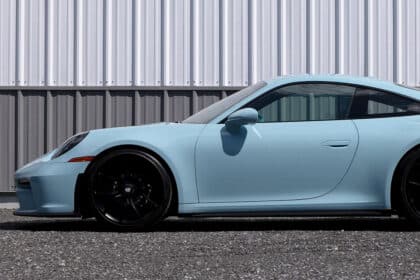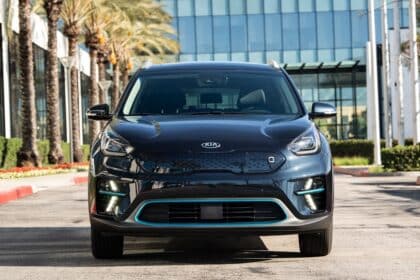 Photo: Porsche
Photo: Porsche
Porsche says it is “on course for success when it comes to sustainability,” having reported a reduction in CO2 emissions by more than 75 percent per vehicle since 2014.
Over the same period of time, Porsche also reduced energy consumption by 31 percent, reduced solvent usage in production by 34 percent, and reduced water consumption per vehicle by 20 percent. All this while increasing production by 82 percent and reporting a record fiscal year. Clearly, going green isn’t the economic burden that some would claim.
Despite achieving a 16.6 percent return on sales in 2018, the company suggested this was mainly a good thing because it enables Porsche to make forward strides environmentally. “We do not view profitability as an end itself,” said Albrecht Reimold, a Porsche executive. “Because we can be really successful only if economical, social and ecological aspects are in line with each other.”
Related: Discover Porsche’s modern vehicle lineup
According to Porsche, the main reason it was able to reduce CO2 emission by 75 percent in only five years was thanks to its use of TÜV-certified energy from renewable sources. “Since the start of 2017, the sports car manufacturer has produced with renewable energy that comes with a certificate of origin or the actual physical source of the electricity. This meets the highest ecological standards,” Porsche said in a statement.
Porsche also says production of the Taycan, the company’s first-ever all-electric vehicle, will be totally CO2-neutral at its “Zero Impact Factory.” It will use an NOx-absorbing high-tech façade that breaks down pollutants into harmless substances, not unlike trees.
Related: What are Porsche N-Spec tires? 
The News Wheel is a digital auto magazine providing readers with a fresh perspective on the latest car news. We’re located in the heart of America (Dayton, Ohio) and our goal is to deliver an entertaining and informative perspective on what’s trending in the automotive world. See more articles from The News Wheel.








